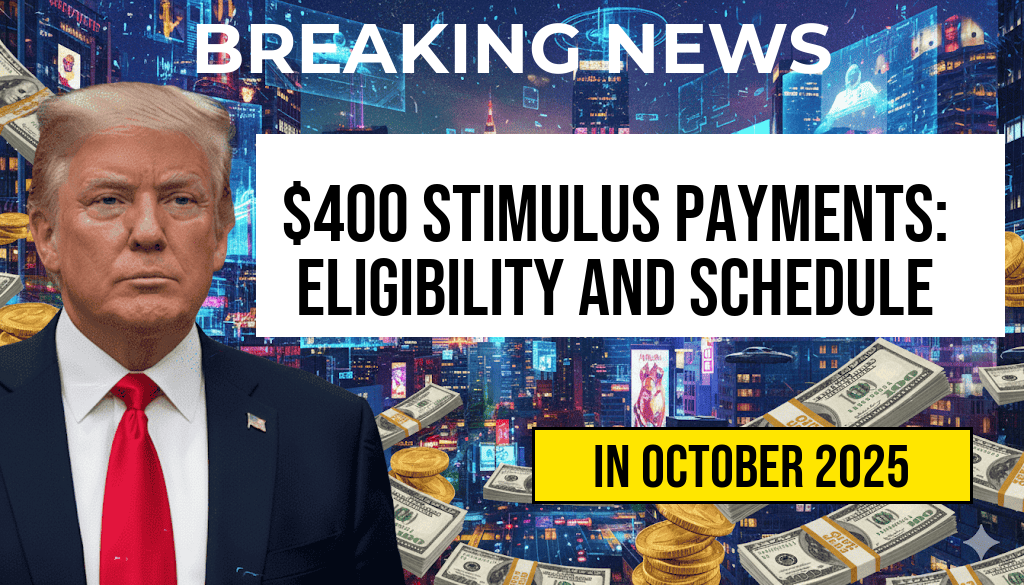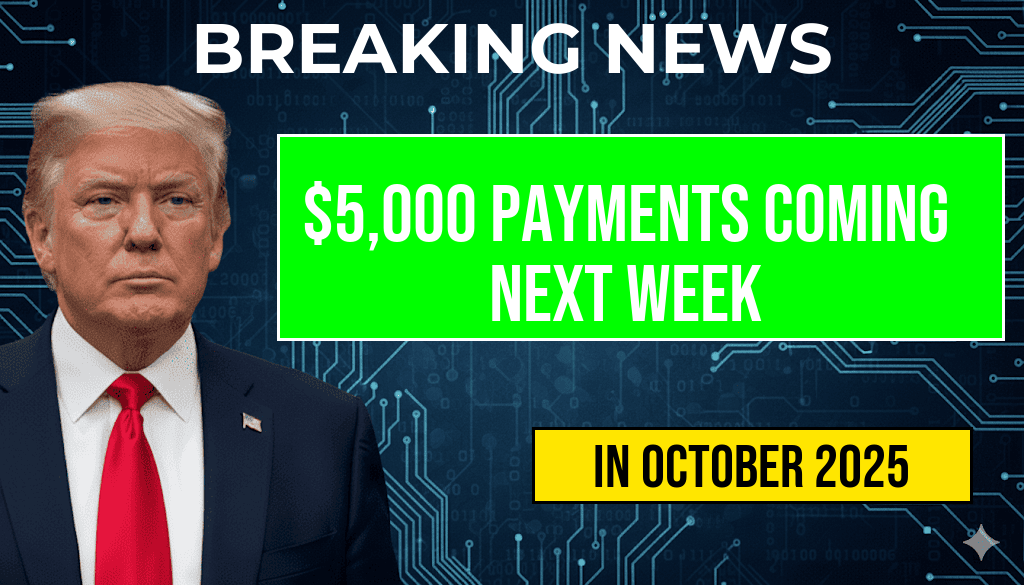The recent announcement regarding $400 stimulus payments has garnered significant attention as U.S. residents navigate the ongoing economic challenges. This financial assistance aims to support families and individuals facing rising costs due to inflation and other economic factors. Eligible recipients can expect to receive the payment in the coming months, provided they meet specific criteria. This comprehensive guide outlines the eligibility requirements, the payment schedule, and additional information vital for those seeking to benefit from this program.
Eligibility Criteria for the $400 Stimulus Payments
To qualify for the $400 stimulus payment, applicants must meet several criteria set forth by the federal government. These parameters ensure that the funds reach those who need them most. Below are the primary eligibility factors:
- Income Level: Individuals earning less than $75,000 annually and couples with a combined income of less than $150,000 are eligible for the full payment. For those with incomes above these thresholds, the payment amount may gradually decrease.
- Residency: Applicants must be legal residents of the United States and must have lived in the state where they are applying for at least six months prior to the payment date.
- Tax Filings: Eligibility is typically based on the most recent tax return filed. Applicants must have filed their 2021 taxes to qualify.
- Social Security Number: All applicants must possess a valid Social Security Number or an Individual Taxpayer Identification Number (ITIN).
Payment Schedule for the $400 Stimulus Payments
The payment of $400 will be distributed in several phases, allowing for an efficient rollout while accommodating various state regulations. Below is an overview of the anticipated payment timeline:
| Payment Phase | Expected Distribution Date | Eligible Groups |
|---|---|---|
| Phase 1 | January 15, 2024 | Low-income individuals and families |
| Phase 2 | February 15, 2024 | Middle-income individuals and families |
| Phase 3 | March 15, 2024 | Remaining eligible applicants |
Application Process for the Stimulus Payments
Eligible individuals can apply for the stimulus payments through the Internal Revenue Service (IRS) website or by contacting their state’s revenue department. The application process is designed to be straightforward, ensuring that those in need can easily access the funds.
Applicants should have the following information ready:
- Social Security Number
- Income details from the most recent tax return
- Proof of residency
Once applications are submitted, recipients can expect to receive updates via email or through the IRS portal regarding their payment status.
Frequently Asked Questions
To further assist residents, here are some common questions regarding the $400 stimulus payments:
- Will the payment affect my tax return?
Generally, these payments are not taxable income; however, it is advisable to consult a tax professional for personalized advice. - What if I missed the application deadline?
Late applications may be considered, but eligibility will depend on the specific guidelines set by state authorities. - How will I receive my payment?
Payments will typically be issued via direct deposit if the IRS has your banking information, or through physical checks sent by mail.
Conclusion
The $400 stimulus payments represent an important financial lifeline for many families and individuals struggling with the economic repercussions of the past few years. By understanding the eligibility criteria and payment schedule, residents can better prepare for this assistance. For more detailed information, resources such as the IRS website and Forbes provide additional guidance.
Frequently Asked Questions
What are the eligibility criteria for the $400 stimulus payments?
To qualify for the $400 stimulus payments, individuals must meet specific income thresholds, residency requirements, and other criteria set forth by the state or federal guidelines. It is essential to review the detailed eligibility requirements to determine if you qualify.
When can I expect to receive my $400 stimulus payment?
The complete payment schedule for the $400 stimulus payments varies by state and individual circumstances. Generally, the payments are distributed on a rolling basis, with most recipients receiving their payments within a few weeks of approval.
Are there any actions I need to take to receive my $400 stimulus payment?
In most cases, eligible individuals do not need to take any action to receive the $400 stimulus payment. However, it is advisable to ensure that your tax information is up-to-date and that you have filed your taxes for the previous year to facilitate the payment process.
Will the $400 stimulus payment affect my taxes?
No, the $400 stimulus payment is considered a tax rebate and should not be counted as taxable income. However, it is always good practice to consult a tax professional for personalized advice regarding your financial situation.
How can I check the status of my $400 stimulus payment?
You can check the status of your $400 stimulus payment through the official government website or the designated state portal. These platforms typically provide real-time updates on payment status and any issues that may arise during processing.












